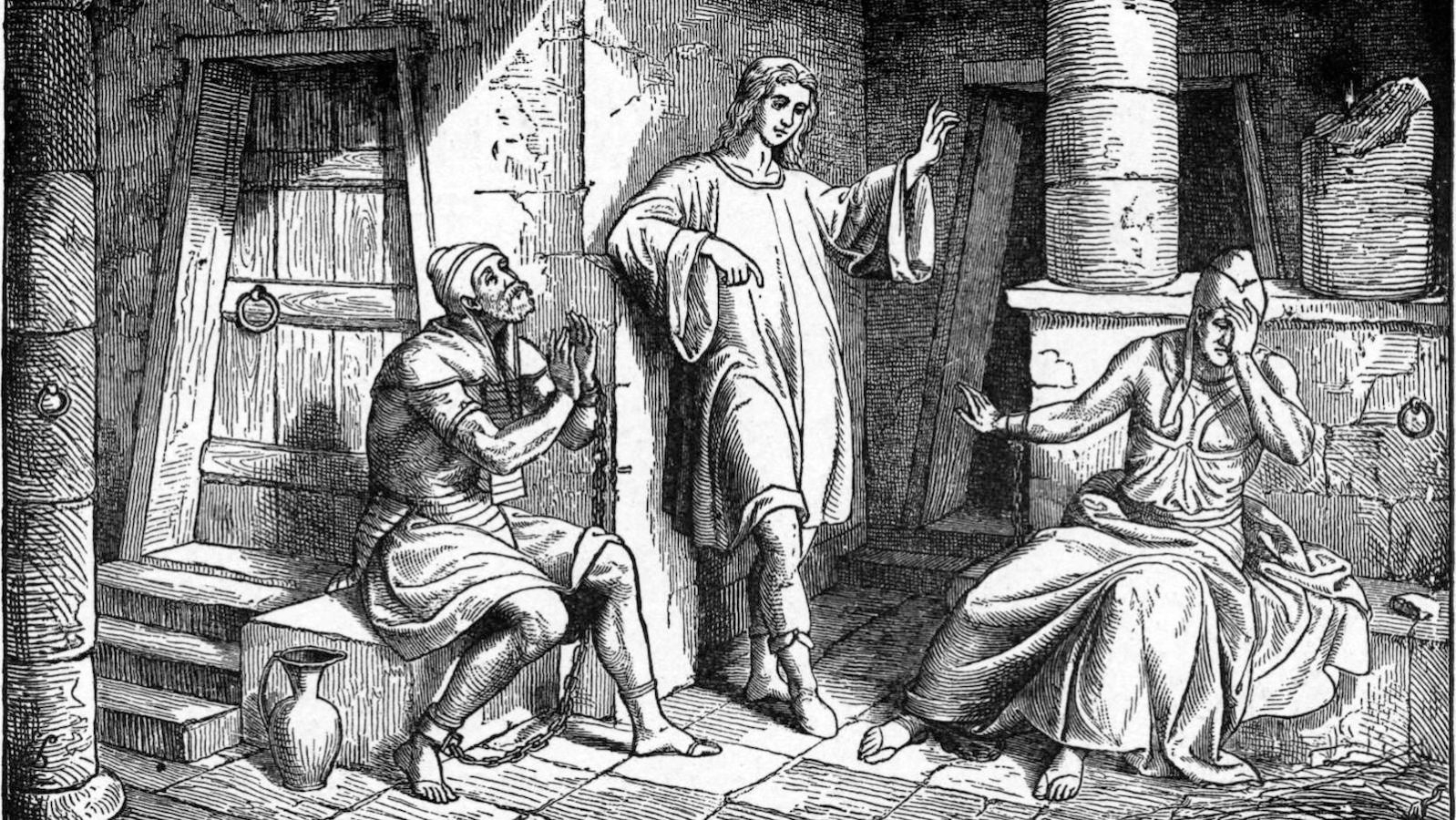Commentary on Parashat Vayeshev, Genesis 37:1-40:23
A long airplane flight is a mixed bag. On the one hand, you have three or four hours of uninterrupted time: to read a novel, to write in a journal, to chat with the person next to you, to daydream–if that’s your pleasure. Leisure time of such abundance is hard to come by.
On the other hand, there’s the guffaw of the passenger across the aisle, the turbulence, the kid kicking the back of your seat and, worst of all, the restriction of movement: you’re told when you can stand up and when you can use the toilet. After climbing over your neighbor’s lap to get to the aisle, you’re blocked by a drink cart. It’s infantilizing. It’s draining. Imprisoned, you check your watch again. Seconds pass…
In this week’s portion, Joseph is twice confined — in the pit and the dungeon. The first time, his brothers collude against him and his nocturnal visions of grandeur. “Let us see what becomes of his dreams (Genesis 37:20),” they say, before they cast him in the pit. The second time, he offends his master’s wife by refusing her advances and again finds himself imprisoned when this powerful woman twists the truth. In both cases, he receives a punishment at the hands of those who find fault with his behavior. The imprisonment is (apparently) an attempt to put Joseph where he belongs.
But Joseph’s arrogance is not cured by his time in the well or the dungeon. He interprets the dreams of his fellow inmates–foretelling both promotion and grisly death — without a single display of compassion. Following the same pattern after his final release, he orchestrates a national plan that saves the stomachs of the Egyptian population by selling the entire nation into servitude to his master, Pharaoh.

Help us keep Jewish knowledge accessible to millions of people around the world.
Your donation to My Jewish Learning fuels endless journeys of Jewish discovery. With your help, My Jewish Learning can continue to provide nonstop opportunities for learning, connection and growth.
It seems that if anything, Joseph has learned a bitter lesson–there is no better way to show your power than to take away someone else’s.
Regimes of Fear
The European Union’s Annual Report on Human Rights lists, nation by nation, those with offending records: Burma, Iran, China, Libya, Cuba. The report documents the names of prisoners-of-conscience whose dreams, whose voices, whose freedom, and whose lives are behind bars. Yet this is only the beginning. Each imprisonment affects not only the prisoner, but also spreads the regime of fear outward from family to community to nation. It drives a kind of national collective imprisonment.
Joseph was, himself, blessed. Both of his imprisonments served as steps in his personal journey. The first brought him out of his father’s home and down to Egypt where he began his rise to power. The second established him as an indispensable, invaluable resource to Pharaoh, the highest power in the land.
In that sense, paradoxically, the prison–the place where punishment is exacted by restricting personal movement, self-determination, and agency–put him on the path toward playing a role in national redemption.
But this redemption came at a terrible cost to humanity as a whole.
Prison in the Torah
Despite the Torah being a book of law filled with descriptions of crimes and punishments, this parashah features imprisonment far more than any other. In fact, imprisonment is not a Jewish response to crime. The Torah stipulates that crimes be remunerated financially or be addressed by physical or capital punishment–a person’s freedom is almost never taken away as a penalty.
This is because, as Joseph’s story shows us, prison is not a place of rehabilitation. It is a tool of fear, an instrument that hardens the incarcerated.
On the one hand, human society is ethically obligated to enforce justice and to provide safety and stability. On the other hand, miscarriages of justice and the imprisonment of dreamers create suffering and devastate society.
As I stretch my legs, arch my back, and remove my carry-on bag from the overhead, jabbing my neighbor in the eye, I know that my self-determination, my sense of human dignity, and my lumbar region will soon be back to normal. What remains, however, is the question–Is there a way for our global society to fulfill a shared commitment to justice without stripping anyone of basic human dignity?
This question must guide our vision for a just world, for if we are not guided by such an image, then generation after generation, we will strip millions of their futures–and who will pay the price for what will become of their dreams?
Provided by American Jewish World Service, pursuing global justice through grassroots change.




